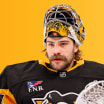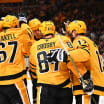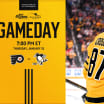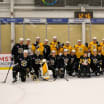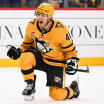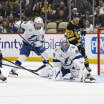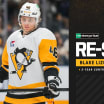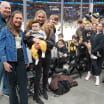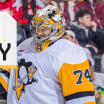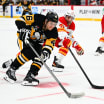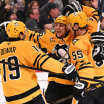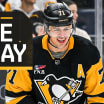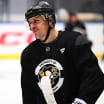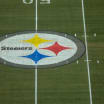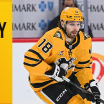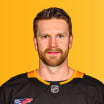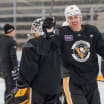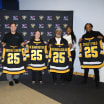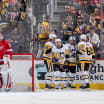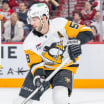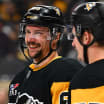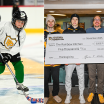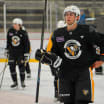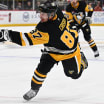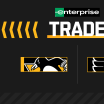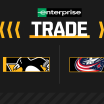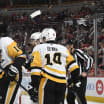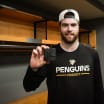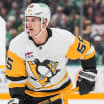The Willie O'Ree Academy Has Empowered Black Youth Players in Pittsburgh
It's helped them advance their skills, develop a strong social network and celebrate their uniqueness
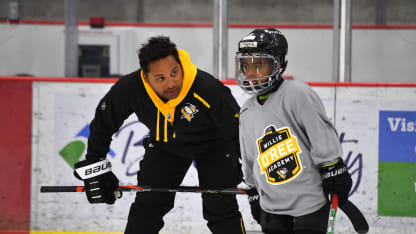
© Joe Sargent
Having immigrated from Cape Town, South Africa to the United States in 2013, Lynn knew nothing about the sport, but her interest was piqued. One day, she was talking with her supervisor at work, and the woman told her about Sidney Crosby's Little Penguins Learn to Play Hockey program.
"At that stage, I didn't earn much," Lynn said. "I would never been able to afford the equipment, so I'm just so thankful. And that's how he started."
The next step was getting Akoung onto a team, which Lynn wasn't sure how to do. She eventually discovered the Pittsburgh Vipers youth organization, where Akoung tried out, earned a spot and has loved it ever since.
But for as much as the family has cherished their hockey journey, it could be a lonely one - until they learned about the Willie O'Ree Academy. And now, the Dicksons have others on that journey with them.
"I think how it's helped me and him is that we are now connecting and networking with people that he can actually relate to," Lynn said. "Because I want him to know that you are enough. You are more than enough. You don't have to be like everyone else.
"In fact, your uniqueness, the fact that you are this blend of cultures, is what you should celebrate. And Willie O'Ree, this academy and this exposure - I think this has kind of helped him embrace what I'm trying to teach him."
The Penguins created
the Willie O'Ree Academy
- named for Willie O'Ree, who became the NHL's first Black player in 1958 and was inducted into the Hockey Hall of Fame as a builder in 2018 - to provide unique training, social and mentorship opportunities for Black youth hockey players and their families in the Pittsburgh region.
The academy, which is presented by DICK'S Sporting Goods, wrapped up the nine-week summer portion of the program on Tuesday. It brought together Black youth players from the ages of 10-18 already skating in the Pittsburgh Amateur Hockey League (PAHL) and Pennsylvania Interscholastic Hockey League (PIHL) for two training sessions a week, one on the ice and one off the ice.
The inaugural Willie O'Ree Academy concludes
Many of the kids didn't know each other prior to this, but the academy gave them a chance to meet, get together, skate and train and share experiences. It was eye-opening for Gary Kirstein, whose 12-year-old son Calvin plays for the South Hills Panthers.
"I'm pretty active with him and his association, but I didn't realize that there were 28 or 30 Black kids playing ice hockey in Pittsburgh," Gary said. "So it's been wonderful for him to know that this young man is at this association, Calvin is probably going to compete against him, and make friends that will last a long time."
Like 11-year-old Sebastian Reid-Woodhouse, who plays for the Allegheny Badgers.
"I met Calvin, he plays on a team that's in our league, and we're pretty good friends now," Sebastian said. "So I'm happy that I'll get to see him at games during the regular season."
This was a particularly timely opportunity for 11-year-old Miles Henry, who just moved to Pittsburgh from Chicago with his family. His mother Yvette started looking up teams using the keywords 'hockey' and 'diversity,' and discovered the Willie O'Ree Academy. Now, Miles already has a friend at the new school he'll be attending in the fall, just one of the many benefits of the past few weeks.
"We actually knew who Willie O'Ree was because we're always trying to find heroes of color that my sons can be aware of," Yvette said. "He was one that stood out, obviously, being the first Black player in the NHL. Seeing the journey of his accomplishments in the NHL, and then to learn that there's an actual academy to help support youth and children of diverse backgrounds, was just icing on the cake."
The kids absolutely loved the training sessions, which were based out of the UPMC Lemieux Sports Complex and led by the facility's hockey and training staffs. Once a week, they would spend an hour on the ice doing skills work. After that, they would head upstairs to the Penguins Performance Training Center or head outside for off-ice strength and conditioning sessions.
"I'm excited to take away the training and how I've grown as a player, physically and mentally," Sebastian said. "I'm excited to take that to my team. I love the camp. I love the opportunity for us African-Americans."
The kids also got the chance to receive instruction from NHL players like retired two-time Stanley Cup champion Trevor Daley and Penguins defenseman P.O Joseph,
who flew in from Montreal to surprise the kids last week
. Lynn had to laugh when thinking about how starstruck Akoung was to be on the ice with the 22-year-old blueliner.
"Watching him out there, he was kind of distracted because he was more trying to look at P.O," Lynn chuckled. "It's important. When they see someone that shows up and embodies success in hockey and looks like them, it motivates them. He says, 'He made it, I can make it too.'"
All parents want the best for their children, and as Yvette said, the last thing she wants as a parent of color is to see her child stop playing his particular sport because he doesn't feel like he belongs. This experience reinforced to Miles that he absolutely does belong.
"Miles thought it was very exciting just to see other players, some at a higher skill set/level than him, that kind of look like him and have had a similar journey," Yvette said. "So for him, it's inspiring to be around other players, to have encouragement from the coaches, to see accomplished NHL players. It's just been a real conversation for him at home. In between video games, he's talked about it, which is exciting."
Now that the training sessions are concluded, monthly educational programs will be held throughout the year. The players will get career exposure to Penguins executives, NHL front office executives and Penguins corporate partners; and there also are plans for social events, including Penguins game viewing parties and access to a Penguins practice.
There will also be cultural and identity discussions, like the classroom sessions hosted on Tuesday by Rico Phillips, a firefighter who began his own hockey journey in the late 1980s as a player and a referee. He founded the Flint Inner-City Youth Hockey Program and
won the 2019 Willie O'Ree Community Hero Award
for his efforts to make the game more accessible for Black youth.
Phillips, who is also the director of cultural diversity and inclusion for the Ontario Hockey League, spoke with first the parents and later the kids about dealing with racism in hockey and provided tools for them to take back to their respective teams and associations.
"My hopes are that they become empowered as a player of color like maybe they've never experienced before," Phillips said. "The Penguins organization and the Penguins Foundation really have an understanding that it isn't just performative, that we need to help these players become better people and give them the confidence they need to be all of who they are."
Just like Lynn is trying to teach her son as he continues along his own hockey journey.
"It's just great to watch him and to see how he grows and the appreciation that he has for the exposure he's getting, because he doesn't take it for granted," Lynn said. "Akoung has his hockey stick from when he started with Learn to Play up on his wall, and his Willie O'Ree sweater - that's going to go up on his wall, too. So these are just beautiful memories. We're so thankful."


